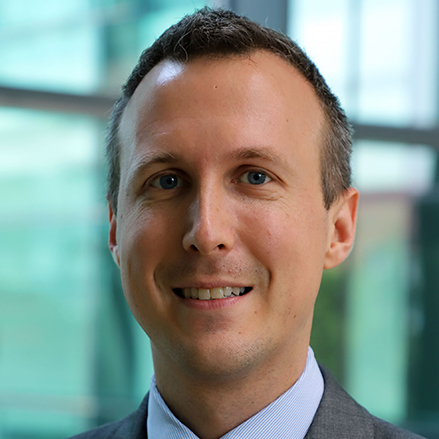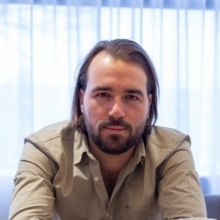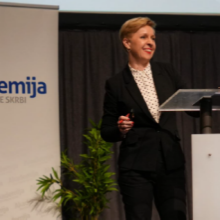- Session 1
- Session 2
- Session 3
- Session 4
- About the series
- RELATED
Strategic planning of social services, driving equity and access for all
Brief | Presentation | Watch Recording
Effective planning for social services requires coordination among key stakeholders, reliable data on population needs and adequate financing. Across Europe and Central Asia (ECA), countries adopt different approaches to designing and delivering social services, with some countries emphasizing local autonomy while others follow national guidelines. However, access to services remains unequal within countries, particularly in rural areas, due to gaps in data availability, differences in targeting mechanisms, and disparities in financing capacity.
This session will examine how governments plan social services to meet users' needs, define roles and responsibilities between different levels of government, and determine which services to provide in alignment with population needs. The session will also discuss the link between planning and financing and how these elements influence equity and access to social services. Experiences from Lithuania, Spain and Italy will be presented to bring different perspectives in the design and planning of social services.
Speakers
Unlocking financing and innovation for social services
Brief | Presentation | Watch Recording
Demographic shifts and fiscal constraints are placing increasing pressure on the financing of social services. These challenges are compounded by fragmented financing mechanisms at the local level, where resources are drawn from multiple sources, each with varying levels of coordination and efficiency. In addition, regional disparities in budget allocation can hinder the equitable provision of social services within countries. Without a clear strategy to pool and allocate resources effectively, countries may struggle to meet the growing demand for services.
This session will examine innovative financing strategies designed to improve the efficiency of public spending and enhance the long-term sustainability of social services. It will also explore how governments balance different financing sources—such as central taxation, local taxes, insurance models, personal budgets, and co-payments—and how these mechanisms contribute to ensuring both equity and accessibility. Country experiences from France and Romania will be shared to highlight practical approaches and lessons learned.
Speakers
Moderator
Leveraging the private and third sectors in the provision of social services
Brief | Presentation | Watch Recording
Decentralization is often pursued as a means to empower local authorities and improve service delivery by tailoring services to the specific needs of communities. However, it can also present challenges in service provision, particularly when local governments face inefficiencies in procurement strategies, complex regulatory frameworks, and limited resources. These challenges can undermine the ability of local authorities to deliver services consistently.
This session will explore different commissioning strategies and highlight successful procurement practices that have helped strengthen the consistency and efficiency of social services at the local level. It will discuss how countries assess which services to outsource and how they ensure that quality is maintained throughout the outsourcing process. Experiences from the UK, Slovakia and North Macedonia will be shared, offering valuable insights into how outsourcing can contribute to more sustainable and efficient provision of social services.
Harnessing the power of human resources in social services
Brief | Presentation | Watch Recording
Human resources are the backbone of good quality social services. However, low wages, limited training programs and career advancement opportunities hinder the recruitment and retention of qualified personnel. These factors contribute to persistent workforce shortages, high turnover rates, and caregiver burnout, undermining the effectiveness of social service delivery.
This session will provide an overview of how governments organize, develop and support the social workforce. It will focus on the role of policies to enhance training, formalization, and retention. Drawing on experiences from international organizations, Croatia, and the Netherlands, the session will identify best practices for enhancing social and care work and advancing the professionalization of the sector.
About the webinar series: Strengthening social services at the local level - challenges, innovations, and lessons learned
Social services are a cornerstone of social protection systems in Europe and Central Asia (ECA), providing essential support to vulnerable populations. Poverty is multidimensional and requires interventions that go beyond cash assistance to ensure access to essential services, opportunities and inclusion. Social services are also a good vehicle for countries to respond to social trends such as ageing, migration, or other transitions. In the ECA region, social services are planned, financed, and delivered through a mix of public and private efforts, with decentralization allowing for tailored solutions at the local level. Financing primarily comes from public funds, with variations across countries, and private and third sector actors play a growing role in the provision. While these services are fundamental to the region’s welfare states, key challenges persist in the region, including disparities in access, constrained financing, uneven quality, and workforce shortages.
In response to growing demand from countries, the World Bank is expanding its engagement in social services to build more comprehensive and resilient support systems. The Social Protection in Europe and Central Asia unit at the World Bank is organizing a series of BBL exchanges, bringing together experts, policymakers, and practitioners to share lessons learned and best practices for strengthening social services at the local level. The sessions will be held between March and May 2025, and will be organized around four main themes: (i) strategic planning of social services, driving equity and access for all; (ii) unlocking financing and innovation for social services; (iii) leveraging the provision of social services; and (iv) harnessing the power of human resources. This activity aims to contribute to the ongoing reforms and development of social services by means of learning about different experiences on planning, financing and delivering social services at the local level. The discussions will inform and support World Bank clients’ ongoing efforts in the development of inclusive, equitable, and sustainable social services in ECA.
EVENT SERIES
Webinar Series: Strengthening social services at the local level
Seminar 1: Strategic planning of social services, driving equity and access for all
Seminar 2: Unlocking financial and innovation for social services
Seminar 3: Leveraging the private and third sectors in the provision of social services
Seminar 4: Harnessing the power of human resources in social services
Date: May 13, 2025
Time: 09:00 AM - 10:00 AM ET
Location: Virtual













